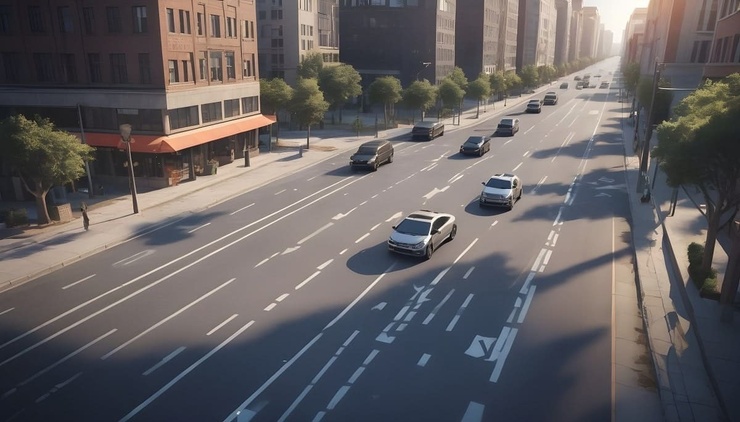- Last-Mile
Top Challenges in Last Mile Fulfillment and How to Overcome Them
Last mile fulfillment is the final step in logistics process where products are delivered to the customer's doorstep. This phase is the lifeblood of the supply chain specially in the dynamic world of e-commerce. The last mile encompasses various logistical challenges such as route planning, traffic conditions and need for timely communication with customers.
Last mile fulfillment in logistics extends beyond just delivering of products. It is a key moment that shapes customer's perception of a brand. Effective last mile fulfillment builds customer loyalty by ensuring timely and accurate deliveries. Delays or errors during this phase can cause dissatisfaction and loss of business.
To address these challenges businesses may adopt strategies like using micro-fulfillment centers closer to urban areas. They may also outsource to third-party logistics providers or implement hybrid models that combine different delivery methods. Investing in advanced technology and optimizing last mile fulfillment can help improve delivery speed, reduce costs and meet consumer expectations for sustainability and convenience.
Importance of Last Mile Fulfillment in Logistics and Delivery
Last mile fulfillment plays an important role in the customer satisfaction and enhancing delivery efficiency. Here are some key points that highlight its importance:
- Customer experience: Last mile delivery serves as a vital link between a brand and its customers. Efficient and timely deliveries improve the customer experience that increase customer loyalty and positive brand perception.
- Cost optimization: Last mile delivery makes up for 41% of total delivery cost and optimizing it can save a lot of money. Strategies such as route planning, utilizing micro fulfillment centers and outsourcing to third-party logistics providers can help reduce costs.
- Delivery speed and efficiency: Customers are willing to pay extra for same or next day deliveries. Optimizing the last mile logistics including route planning and dispatch can help improve the delivery speed and meet these growing expectations.
- Competitive advantage: Companies with effective last mile fulfillment gain a competitive edge. They offer faster, more reliable deliveries and improved customer experiences. This gives them advantage leading to increased customer loyalty and repeat business.
- Sustainability: As environmental concerns increase companies are under the pressure to reduce their carbon footprint. Optimizing last mile delivery through strategies like route planning and use of electric vehicles can help businesses meet sustainability goals.
By optimizing this stage of fulfillment businesses can enhance their overall logistics operations and stay ahead in a rapidly changing market.
Top Challenges in Last Mile Fulfillment
Businesses navigating last mile fulfillment face challenges like high shipping costs, urban traffic and impatient customers. To succeed they must adopt innovation through real time tracking and AI. They also need to maintain constant communication with consumers. Let’s discuss some key challenges in detail:
- High delivery costs: Over 58% buyers are reported to abandon their shopping carts due to high shipping costs. Last mile delivery is often most costly part of shipping process. It accounts for nearly half of the total shipping costs. This arises from various factors such as the fuel costs, vehicle maintenance and driver salaries.
- Delivery delays: On time delivery is crucial in last mile. Delays can frustrate customers and damage brand reputation. Factors leading to delays include traffic, weather conditions and incorrect addresses. Several studies indicate that the customers might not re-order from a brand after repeated late deliveries.
- Route optimization: Efficient route planning reduces delivery time and cost. Optimizing routes manually can be complex and time consuming. Advanced technologies like machine learning and data analytics can efficiently and quickly optimize routes. However many businesses still rely on the outdated methods.
- Lack of visibility: Many logistics companies struggle to provide real time tracking information which leads to customer anxiety and dissatisfaction. Lack of visibility also affects the fleet manager’s ability to make informed decisions during delivery increasing delays and miscommunication.
- Failed deliveries: Failed deliveries can happen due to many reasons such as incorrect addresses, unavailability of recipients or poor communication. These failures not only come with additional costs for re-delivery but also negatively impact customer experience. Effective communication and planning can reduce failed deliveries.
- Customer expectations: Rise of e-commerce has increased competition in market as customers expect faster and more convenient delivery options. Businesses must continuously innovate and improve their services to keep up with changing expectations. Failing to do so can lead to losing customers.
- Adoption of technology: Many logistics companies still use outdated technology which can affect the efficiency and responsiveness in last mile. Using modern technologies like GPS and automated dispatch systems can improve the delivery processes and ensure timely deliveries.
Addressing these challenges is essential for enhancing last mile delivery operations and improving customer satisfaction. By leveraging technology and optimizing logistics processes businesses can handle last mile delivery challenges better.
How FarEye Can Help with Last Mile Fulfillment?
FarEye offers a comprehensive delivery management platform designed to enhance last mile fulfillment through various advanced features. Here’s how FarEye helps businesses optimize their last mile:
- Cost reduction: FarEye's platform uses advanced algorithms for route optimization and carrier allocation. They help plan more efficient routes and reduce fuel consumption which improves profit margins for businesses.
- Real time visibility: The platform provides real time tracking and updates to both the shippers and customers. This helps build trust and enhances customer experience by keeping them informed about status of the order throughout delivery journey.
- Enhanced customer communication: FarEye helps improve the communication gaps in the last mile logistics. Automated notifications about delivery times and potential delays help businesses manage customer expectations. This reduces customer anxiety about status of their order.
- Flexible delivery options: The platform supports delivery methods including same day and on demand delivery. This flexibility helps meet growing consumer demand for convenience and delivery preferences.
- Improved operational efficiency: FarEye's platform increases efficiency by automating order allocation and dispatch resulting in faster deliveries and higher productivity. This helps businesses focus on higher value tasks which helps improve customer satisfaction and competitiveness in market.
- Sustainability: FarEye helps businesses optimize delivery routes to reduce emissions, appealing to eco-conscious consumers and enabling them to meet sustainability goals. The platform offers features like Green Vehicle Route Planning, Long Haul Truck Route Planning, Carrier Allocation System and Sustainability Dashboard to minimize environmental impact.
- Seamless reverse logistics: The platform simplifies return process for customers and businesses making returning products easier. This enhances customer satisfaction and encourages repeat business by making shopping experience more user friendly.
- Scalability: FarEye helps businesses scale their delivery operations efficiently. The platform can quickly integrate temporary drivers and manage logistics tasks helping companies to adapt to changing demand without compromising on service quality.
- Data driven insights: The platform provides valuable data analytics that help businesses understand their delivery performance. By leveraging this data businesses can make informed decisions to optimize their logistics strategies and enhance customer experiences.
- Seamless integration: FarEye enables seamless integration with e-commerce platforms which helps the businesses to offer enhanced delivery options and improve customer’s shopping experience. This helps streamline the entire customer journey from purchase to delivery leading to greater customer satisfaction.
By addressing these critical aspects of last mile fulfillment FarEye empowers businesses to enhance their delivery operations, improve customer satisfaction and maintain a competitive edge in market.
Benefits of Using FarEye for Last Mile Fulfillment
FarEye's last mile delivery platform offers several key benefits for businesses looking to optimize their last mile fulfillment operations:
- Enhances shipment visibility: FarEye provides real time visibility into the vehicle locations, route deviations and delivery times. This provides better fleet control and helps reduce theft and spoilage. Predictive visibility tools help forecast where shipments should be at any given time.
- Optimizes delivery routes: FarEye's route optimization capabilities enable real time route adjustments to avoid delays. Drivers get updates about the fastest routes to maximize deliveries per day while reducing the fuel costs.
- Improves transparency: FarEye’s platform provides order to door tracking from order placement to delivery. Customers can view order status and chat with the delivery agents for better coordination.
- Boosts customer engagement: By offering flexible delivery options, real time tracking and constant communication FarEye’s platform helps businesses deliver a superior customer experience. It also allows the customers to change delivery times and locations if needed.
- Enhances productivity: FarEye eliminates unnecessary diversions and idling to increase the fleet productivity. It can quickly onboard the gig workers to handle peak demand. Route planning optimizes deliveries per day based on the order volumes.
- Increases profitability: By optimizing routes, scaling deliveries and increasing productivity FarEye helps businesses reduce the fuel costs and fleet expenses. This improvement in efficiency also enhances customer loyalty and retention which increases profitability.
Conclusion
Last mile fulfillment is a critical part of the logistics process which significantly impacts customer satisfaction and brand perception. It comes with challenges such as high costs, traffic congestion and rising customer expectations. Businesses that effectively optimize this phase not only enhance their operational efficiency but also enhance customer loyalty with timely and accurate deliveries.
As sustainability gains importance adopting eco-friendly practices in the last mile delivery will be crucial for companies to stay competitive. In this fast evolving market investing in innovative solutions and cutting edge technologies is essential for success!

Komal Puri is a seasoned professional in the logistics and supply chain industry. As the AVP of Marketing and a subject matter expert at FarEye, she has been instrumental in shaping the industry narrative for the past decade. Her expertise and insights have earned her numerous awards and recognition. Komal’s writings reflect her deep understanding of the industry, offering valuable insights and thought leadership.
Let's Talk to Our Experts and Optimize Your Deliveries Today!
An expert from our team will reach out within 24 hours
Related resources



